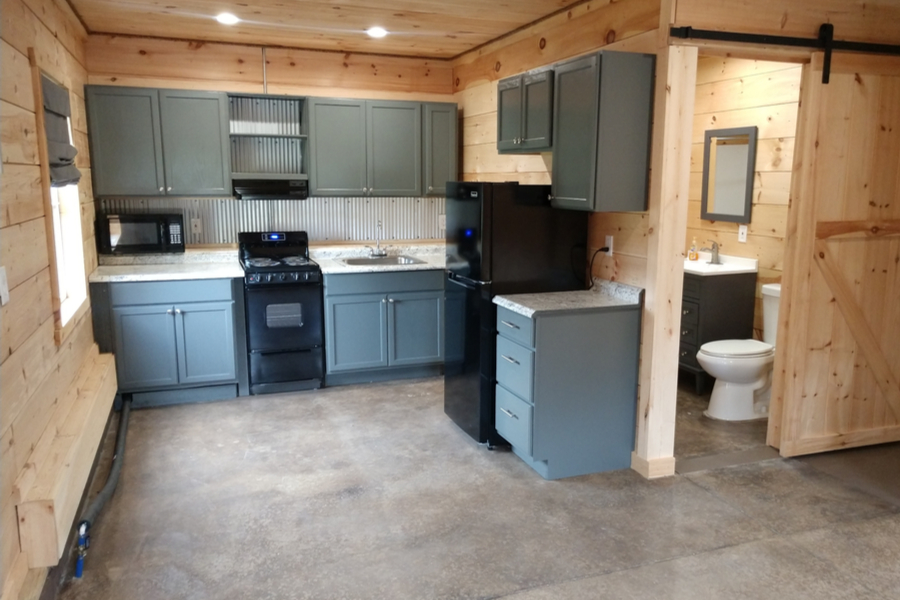Convert Garage To Studio Apartment Permits Required

This comprehensive guide details the permits, regulations, and legal requirements you’ll need to navigate the process successfully. Learn about zoning laws, building codes, and more.
Keywords: garage conversion, studio apartment conversion, permits for garage conversion, building permits, zoning permits, garage apartment regulations, legal requirements for garage conversion, home conversion, ADU conversion, accessory dwelling unit, building codes, zoning laws, occupancy permits, electrical permits, plumbing permits, construction permits
Converting a garage into a studio apartment, also known as an accessory dwelling unit (ADU), can be a lucrative venture, adding significant value to your property while potentially providing rental income or extra living space. However, this undertaking involves navigating a complex web of permits and regulations. Failure to obtain the necessary approvals can lead to hefty fines, legal battles, and even the demolition of your project. This comprehensive guide will equip you with the knowledge to successfully convert your garage into a legal and habitable studio apartment.
I. Understanding Zoning Regulations: The Foundation of Your Project
Table of Content
Before you even think about purchasing building materials, you must understand your local zoning regulations. These laws dictate what you can and cannot build on your property, including the permissible uses of structures like garages. Key aspects to investigate include:
- Zoning Classification: Determine the zoning classification of your property. Some zones explicitly prohibit ADUs, while others may have restrictions on size, height, setbacks (distance from property lines), and parking requirements.
- door tongue and groove
- pool house doors
- garage steps into house ideas
- swing open garage doors
- sliding door garage
- ADU Ordinances: Many municipalities have specific ordinances governing the construction and conversion of accessory dwelling units. These ordinances often outline detailed requirements regarding size, accessibility, parking, and utilities. These can be significantly more detailed than general zoning laws.
- Setback Requirements: These regulations specify the minimum distance your converted garage must be from property lines, streets, and other structures. Non-compliance can lead to immediate rejection of your permit application.
- Parking Requirements: Zoning regulations may mandate a minimum number of parking spaces based on the number of dwelling units on your property. Converting your garage might impact your existing parking situation, so ensure you understand the requirements beforehand.
- Height Restrictions: The height of your converted garage, including any additions, must adhere to local height restrictions. This is particularly important if you plan on adding a second story or significantly raising the roof.
Related Article Convert garage to studio apartment permits required

Locating Your Zoning Information: Your local city or county planning department is your primary resource for zoning information. Their website usually offers online zoning maps and searchable databases. You can also contact them directly to obtain specific information about your property.
II. Navigating the Permitting Process: A Step-by-Step Guide
The permitting process varies depending on your location, but generally involves these steps:
-
Preliminary Consultation: Before submitting any formal applications, consider a preliminary consultation with your local building department. This can help you avoid costly mistakes and ensure your project complies with all regulations. They can provide valuable insights into the specific requirements for your area.
-
Application for Building Permits: This is the core of the permitting process. Your application will typically require detailed plans, including:

- Architectural Plans: These show the layout of the converted space, including dimensions, materials, and structural details. Professional architectural drawings are usually required, especially for significant structural modifications.
- Electrical Plans: These detail the electrical system, including wiring, outlets, lighting fixtures, and panel upgrades. A licensed electrician will typically prepare these plans.
- Plumbing Plans: These show the plumbing system, including water supply, drainage, and wastewater disposal. A licensed plumber will prepare these.
- Mechanical Plans (HVAC): If you’re installing or modifying heating, ventilation, and air conditioning systems, you’ll need plans for these as well. A qualified HVAC technician should prepare these.

-
Zoning Permit Application: Separate from building permits, you’ll likely need a zoning permit to ensure your project complies with zoning regulations. This often involves demonstrating compliance with setback requirements, parking regulations, and other zoning-specific rules.
-
Environmental Impact Assessment (if required): Depending on the scale of your project and your location, you may need an environmental impact assessment to evaluate potential effects on the environment.
-
Review and Approval: Once submitted, your applications will undergo review by the relevant authorities. This can take several weeks or even months, depending on the complexity of your project and the workload of the building department. Expect revisions and clarifications during this process.
-
Inspections: Throughout the construction process, you’ll likely have several inspections to ensure compliance with building codes and regulations. These inspections cover various aspects, including foundation, framing, electrical, plumbing, and final inspection.

III. Essential Considerations for Your Garage Conversion
Beyond permits, several crucial aspects need careful consideration:
-
Structural Integrity: Assess the structural integrity of your garage. Converting it to a habitable space may require significant structural reinforcement, particularly if it’s an older structure. A structural engineer can assess the existing structure and recommend necessary improvements.
-
Insulation and Energy Efficiency: Adequate insulation is critical for a comfortable and energy-efficient living space. Consider using high-performance insulation materials to minimize energy costs.
-
Accessibility: Ensure your converted studio meets accessibility standards, particularly if you intend to rent it out. This might involve installing ramps, wider doorways, and accessible bathroom fixtures.
-
Fire Safety: Install smoke detectors, carbon monoxide detectors, and fire extinguishers. Ensure your electrical wiring and appliances meet fire safety standards.
-
Ventilation: Proper ventilation is crucial for a healthy living environment. Install ventilation systems to prevent moisture buildup and ensure adequate air circulation.
-
Utilities: You’ll need to connect to essential utilities, including electricity, water, sewer, and gas (if applicable). This may require upgrades to your existing utilities or connections to municipal services.
IV. Legal and Financial Aspects
-
Insurance: Ensure your homeowner’s insurance covers the conversion project and the resulting studio apartment. You might need to adjust your coverage to reflect the increased value of your property and the addition of a rental unit.
-
Property Taxes: Converting your garage will likely increase your property taxes. Factor this into your budget and financial planning.
-
Rental Regulations (if applicable): If you plan to rent out the studio apartment, familiarize yourself with local rental regulations, including licensing requirements, tenant rights, and landlord responsibilities.
V. Conclusion: A Rewarding but Demanding Process
Converting a garage into a studio apartment is a potentially rewarding project, offering increased living space or a valuable rental income stream. However, it’s a complex undertaking requiring careful planning, meticulous attention to detail, and strict adherence to local regulations. By thoroughly researching zoning regulations, meticulously obtaining necessary permits, and addressing all the essential considerations discussed above, you can successfully navigate this process and enjoy the benefits of your converted garage for years to come. Remember that seeking professional advice from architects, engineers, contractors, and legal professionals can significantly streamline the process and minimize potential risks. Don’t rush; thorough preparation is key to a successful and legal garage conversion.






